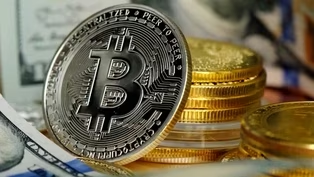
Limits of Free Speech at Universities
Clip: Season 4 Episode 69 | 3m 33sVideo has Closed Captions
The protections and limitations of free speech on university campuses.
After the murder of conservative activist Charlie Kirk, some universities including the University of Kentucky started investigating their employees' social media posts. We talked to a professor about what past case rulings suggest about this moment in higher education.
Problems playing video? | Closed Captioning Feedback
Problems playing video? | Closed Captioning Feedback
Kentucky Edition is a local public television program presented by KET

Limits of Free Speech at Universities
Clip: Season 4 Episode 69 | 3m 33sVideo has Closed Captions
After the murder of conservative activist Charlie Kirk, some universities including the University of Kentucky started investigating their employees' social media posts. We talked to a professor about what past case rulings suggest about this moment in higher education.
Problems playing video? | Closed Captioning Feedback
How to Watch Kentucky Edition
Kentucky Edition is available to stream on pbs.org and the free PBS App, available on iPhone, Apple TV, Android TV, Android smartphones, Amazon Fire TV, Amazon Fire Tablet, Roku, Samsung Smart TV, and Vizio.
Providing Support for PBS.org
Learn Moreabout PBS online sponsorshipLast month, the professor at the University of Kentucky hosted a forum on the protections and limitations of free speech on campus.
The talk was one week after the shooting death of conservative activist Charlie Kirk.
After the murder.
Some universities, including U.K., started investigating their employees social media posts.
We talked to that professor yesterday about what a history of case ruling suggests about this moment in higher education, free speech cases for students, and this would be for K-12 and college students.
We can look to the 1960s.
There was a very famous case, the Tinker case, and it involved students wanting to wear armbands in silent protest of the Vietnam War.
And Mary Beth Tinker, who was a high school student.
And if you see pictures of Mary Beth, is really quite young to be taking the stand.
She did it with her brothers and other students, and the Supreme Court ruled that students don't forfeit their rights to speech and expression just because they're in an educational environment.
For employees who work for public agencies such as public colleges and universities, the Supreme Court and you have lower court decisions that that carry the standard out.
The general rule is that just because you're a public employee, you don't forfeit all your First Amendment speech rights.
There's a balancing component where courts have said, well, even if your speech is protected, there can be reasons to limit this speech.
So, for instance, if it's interfering with the operations of the Institute or in this case, we certainly see some institutions around the country that believe that their employees have engaged in speech.
I've seen terms like vile and that because these individuals are representative of the representatives of the institution, it should subject them to sanction or even firing.
It's in some ways, the more senior you are in a position and in your position, higher level you are.
It might be at an institution, maybe a provost or a dean or a department chair.
You may be viewed as more of a representative, and an institution might be able to argue, well, we really you are a symbol of the institution.
Someone who maybe doesn't have a higher seniority and in the institution may be able to say, well, people are going to get so confused that I'm speaking for the institution.
But what we may see is that some court acts, and this is why we have the courts, when people feel that their First Amendment rights have been violated.
We may see that courts have say that some institutions have gone too far.
And while the the speech may be something that is not palatable or pleasant, or other people may find it distasteful, a court may say that that still should be protected speech.
And this this balancing component isn't enough to knock it out of the box for First Amendment protection.
And that's traditionally been a role of the courts.
When we have moments like this that are very tense.
Actions are taken.
Institutions and leaders are under lots of pressure, is that the courts are supposed to be that safety valve for the first Amendment.
Last month, the University of Kentucky opened an investigation into an employee's online post about Charlie Kirk.
In a statement, U.K.
says it values free speech but also recognizes its employees need to be civil and treat people with respect.
How Kentucky is Coping with the Government Shutdown
Video has Closed Captions
Clip: S4 Ep69 | 4m 6s | Governor Beshear says Kentucky is doing all it can to cope with government shutdown. (4m 6s)
Preventing Seniors From Becoming the Target of Scammers
Video has Closed Captions
Clip: S4 Ep69 | 6m 15s | BBB gives tips on how to keep from becoming a victim of scammers. (6m 15s)
Providing Support for PBS.org
Learn Moreabout PBS online sponsorship
- News and Public Affairs

Top journalists deliver compelling original analysis of the hour's headlines.

- News and Public Affairs

FRONTLINE is investigative journalism that questions, explains and changes our world.












Support for PBS provided by:
Kentucky Edition is a local public television program presented by KET

